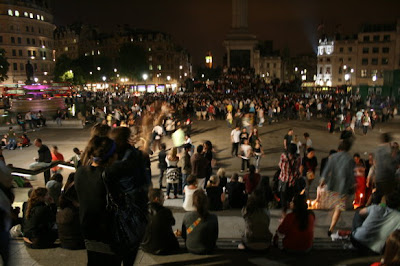The Analyst (Monrovia)
11 June 2008, Posted to the web 11 June 2008
Edwood Dennis, Monrovia China's President Hu Jintao (L) meets Liberia's President
China's President Hu Jintao (L) meets Liberia's President
Ellen Johnson-Sirleaf in Liberia's capital Monrovia February 1, 2007. [Reuters]
Liberia is painstakingly emerging from the depths it was thrown by 14 years of civil infamy and there is no question that it will use all available assistance.
President Ellen Johnson-Sirleaf seems to have no problem with this approach to recovery and said so this week.
President Ellen Johnson Sirleaf has disclosed that there is no conflict of interest in Liberia's relationship with both the U.S. and China.
She said what rather seems to exist is a confusion of interest amongst some of Liberia's international partners on how rapidly and to what level to help spur Liberia's post-war security and economic recoveries...
The President Sirleaf said while neither the U.S. nor the PRC at any time expressed disquiet about the nation's partnership with the other, some Liberians and non-Liberians at one time or the other expressed fear that the direction the administration has taken may, at some point, fuel diplomatic conflict.
She did not say why the Liberians and non-Liberians thought that was a possibility, but observers recalled that the Tolbert administration paid dearly for such relation with China and the Soviet Union during the Cold War years.
Then, the U.S. regarded the two communist nations as threat to the democratization of Third World nations, including Liberia which many say the U.S. guided jealously as a satellite or pilot state.
Today with the U.S. and China cooperating at several fronts including the levels of trade, global terrorism, finance, and banking, analysts say, that Liberia will fall into trouble for courting China is far unlikely.
She said Liberia needed all of its friends, traditional and new, so that the widespread desperation being felt across the country can be taken care of as rapidly as necessary to protect the nation's stability obtained through the sacrifice of UNMIL.
According to her, both the U.S. and China were genuine friends of Liberia who, in their own ways, were concerned about the plight of the nation following years of bad economic policies and a devastating civil war and doing what best they could to help the nation out of its current dilemma.
She said both governments were equally concerned about Liberia's quick recovery as indicated by their past contributions and present efforts to contribute to the improvement and expansion of the nation's only public institution of higher learning and to education in general.
Click here to read the rest of the article


















































